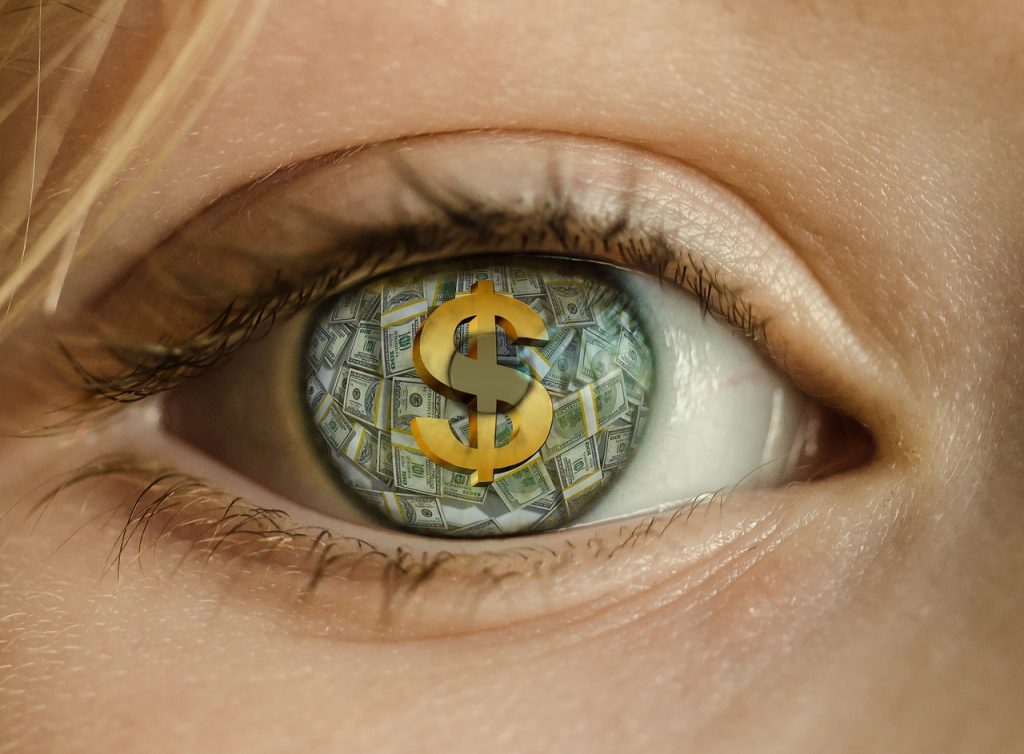This post is also available in Dutch.
Greedy bankers have often been blamed for the financial crisis. Is this truly justified? Two studies show that individual greedy investors do not trade differently and that groups of greedy investors actually trade more rationally.
Questionable practices by greedy bankers have often been mentioned as one of the root causes of the 2008 global financial crisis. The newspaper headlines were full of stories of individual and corporate greed. Whilst the economy sank into a deep recession, greedy bankers became the scapegoats responsible for financial decline. The public was outraged and united in the Occupy protest movement. The message was clear: greedy bankers took too many unnecessary risks and behaved recklessly with their clients’ money in order to ensure greater profits for themselves. But is this blame game actually called for?
What is greed?
Greed is the desire for more – more money, consumer goods, and also nonmaterial possessions, such as status or sex. Research has shown that greedy individuals tend to make more extravagant and impulsive purchases. On top of that, they are more willing to accept bribes and engage in unethical behavior. Interestingly, the greedy are more likely to land a financial job. Together, this makes it plausible that greed negatively influences bankers’ decision-making.
The role of individual greed in trading behavior
In order to investigate these accusations, economics students were invited to the research lab to participate in an interactive game where they could trade stocks and earn money doing so. Participants first filled out a questionnaire to measure their level of greediness. Researchers were interested in participants’ buying, selling and pricing behavior. Contrary to expectations, greedier investors did not trade fundamentally different than non-greedy investors.
A culture of greed: groups of greedy bankers
In real-life, greedy bankers are probably surrounded by other greedy bankers. Therefore, in a second study, participants were sorted into the same stock market game based on their greed score (without being aware of it). This resulted in two types of stock markets, greedy markets and non-greedy markets, and the researchers compared trading behavior in these different markets. Interestingly and unexpectedly, markets populated by greedy traders actually showed smaller and less severe financial bubbles than markets with less greedy traders. A financial bubble occurs when (stock) prices continue to rise far above their actual value, often followed by a price crash. So, it actually seems like groups of greedy investors trade more rationally than groups of non-greedy investors.
Should we blame the “greedy” bankers?
Of course, these studies investigate a simplified version of the stock market that has several differences from real-life trading. Yet, these two studies are a first attempt in understanding the role of greed in the financial decline of 2008 and their results seem to suggest that we might have been too quick in blaming the greed of bankers. So perhaps, as it is put in the famous movie Wall Street from 1987, greed is good (at least to some extent).
Credits
Author: Karlijn Hoyer
Buddy: Julija Vaitonyte
Editor: Rebecca Calcott
Translator: Karlijn Hoyer
Editor Translation: Wessel Hieselaar
Image by Tumisu via Pixabay
